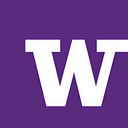
Nuclear Medicine Residency
The University of WashingtonNuclear Medicine Residency
Our program trains board certified diagnostic radiologists trained in the United States or abroad who seek specialty training and US medical school graduates who seek Nuclear Medicine as a career.
The Division of Nuclear Medicine in the Department of Radiology at the University of Washington was established in 1962 by Dr. Wil Nelp. The division has had a successful postdoctoral training program since its inception. Its many graduates are now holding faculty positions in major academic centers and large private practices.
The current one-, two- or three-year residency program is designed in compliance with, and is approved by, the Accreditation Council on Graduate Medical Education (ACGME). Duration of training is dependent on prior experience. Our program provides a balanced and in-depth experience in all aspects of the basic sciences and clinical practice of nuclear medicine imaging and therapy. The program is approved for six (6) full time residents. Candidates must have completed at least one year of internship in the United States. Alternatively, they may be eligible for board certification in another specialty.
One year of Nuclear Medicine training is available to US-trained diagnostic radiologists who wish to pursue special competence in Nuclear Radiology from the American Board of Radiology (ABR) or receive American Board of Nuclear Medicine (ABNM) Certification. International Medical Graduates holding diagnostic radiology certification in their home country can also apply for one or more years of Nuclear Medicine training.
The Nuclear Medicine Division faculty bring extensive expertise in the clinical practice and basic science aspects of nuclear medicine. They are dedicated to teaching trainees to become strong nuclear medicine practitioners. Trainees learn how to integrate nuclear medicine diagnostic scans and therapies in the overall management of patients. Trainees are also provided many opportunities to become effective educators and independent scientific investigators.
The concept of integrative imaging is emphasized by our faculty. Trainees learn to identify imaging findings, characterize them, and to perform correlative imaging with other studies. This information is then integrated with signs and symptoms, type and timing of treatments, and trends in biomarkers in order to deliver an accurate, comprehensive and actionable clinical scan interpretation tailored to a patient’s condition. This approach is taught across the wide range of disease entities that nuclear medicine helps manage (cancer, neurological, pulmonary, cardiac, endocrine, bone, gastrointestinal, genitourinary, and hematologic disorders). In addition, trainees learn how to select the most appropriate imaging study to answer the clinical management question specific to each patient. Our program also teaches how to identify unmet clinical needs central to the development of new imaging strategies and the basis for research projects.
A close collaboration between basic science faculty and clinical faculty of nuclear medicine is at the heart of the division’s success. A comprehensive lecture and conference schedule complements the one-on-one clinical education that our trainees receive.
How to Apply
Our Nuclear Medicine Residency program is currently recruiting for the 2028-2029 academic year.
We have a rolling application timeline, meaning that applicants can apply at any time. Applications are reviewed quarterly. Applicants will be notified if they have been selected for an interview.
How to Apply to the University of Washington Nuclear Medicine Residency Program
The American Board of Nuclear Medicine's requirements for Nuclear Medicine residency programs state that any applicant to a Nuclear Medicine residency program must have completed a minimum of one year of an ACGME-accredited postdoctoral clinical medicine training in the United States prior to enrolling in nuclear medicine residency. International medical graduates who are board certified in diagnostic radiology in their home country may be eligible for a waiver of this PGY-1 training year requirement.
We do not coordinate the PGY-1 year for candidates but will consider applicants who are currently enrolled and performing well in their PGY-1 training, or candidates who already have secured an upcoming PGY-1 training year. Acceptance in our Nuclear Medicine residency program will be contingent on the successful completion of the PGY-1 year.
All candidates must have passed USMLE Step 3 prior to an applicant being considered for an interview with our division.
To apply, please complete the UW Nuclear Medicine training application form and return, along with supporting documentation requested to nmadmin@uw.edu
Requested documentation:
- Completed UW NM Residency Application
- Current CV
- Copy of USMLE Score Reports
- Step 1
- Step 2 – Clinical Skills (CS) if taken prior to May 26, 2020
- Step 2 – Clinical Knowledge (CK)
- Step 3
- OET exam (in lieu of USMLE Step 2- Clinical Skills (CS) exam)
- Copy of Medical School Transcript(s)
- Copy of Dean’s Letter from Medical School
- Copy of medical school diploma
- Letters of reference – minimum of 3
- Personal statement
Please have professional references send original letters directly to the UW Nuclear Medicine Residency program director at the time your application is submitted to nmadmin@uw.edu
Letters of recommendation should be addressed to:
Fatemeh Behnia, M.D.
Director, Nuclear Medicine Residency Program
University of Washington Medical Center
1959 N.E. Pacific St., Box 357233
Seattle, WA 98195-7233
If you need further assistance, please contact our Nuclear Medicine administrator at: nmadmin@uw.edu